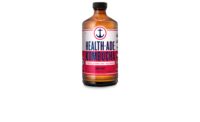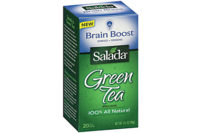Research highlights benefits of cherry ingredients
Coffee cherry aids in cognitive health

Today, an increasing number of consumers are turning to food and beverages to advance their health and wellness. To support this trend, experts highlight that quality research is helping ingredients new and old further their healthy association. For the cherry market, it remains no different.
“Over the past decade, researchers have conducted any number of studies focusing on the role Montmorency tart cherries can play in a person’s pursuit of health, from aiding in sleep quantity and quality (they’re a naturally occurring source of melatonin) to reducing inflammation,” says Lynn Vollbrecht, director of strategic marketing for the DeWitt, Mich.-based Cherry Marketing Institute.
At the beginning of 2019, a study published in Food & Function found that 8 ounces of 100 percent tart cherry juice consumed daily for four weeks significantly reduced certain biomarkers of inflammation that are associated with chronic disease among overweight and obese adults, according to a release from the Cherry Marketing Institute.
“Tart cherries are among the richest sources of anthocyanins, and our results found that these polyphenols were effectively digested and absorbed,” said lead author Keith R. Martin, assistant professor at the Center for Nutraceutical and Dietary Supplement Research at the University of Memphis, in a statement. “We also observed a positive effect of tart cherry juice on the specific markers of inflammation related to chronic disease, potentially linked to these beneficial compounds.”
Brian Gerberding, director of sales and marketing for Traverse City, Mich.-based Shoreline Fruit LLC, highlights that increased awareness around the health benefits of cherries has aided the fruit in formulation usage.
“The message regarding the benefits of Montmorency tart cherries seems to be getting through to consumers,” he says. “More and more of the general public wants to find natural ways to treat their conditions like joint inflammation, gout, lack of sleep and muscle soreness. They’d rather not take a trip to the medicine cabinet as the first option.”
Although cherry has gained a following as a stand-alone juice product, Gerberding and the Cherry Marketing Institute’s Vollbrecht highlight its potential in blended formats.
“We’ve seen a variety of new blends; Montmorency cherries have often been paired with apple juice, but most recently we’ve seen a new coconut water/tart cherry juice blend hit the market,” she says.
Yet, cherry juice is not limited to juice and juice drink formulations. “In terms of recovery drinks, there are also easy-to-carry, dissolvable drink ‘tablets,’ which allow the user to create their own beverage by diluting with water,” Vollbrecht says. “Montmorency tart cherries remain a sought-after ingredient in the wine, cider and beer industries, as well.”
Next generation cherries
As beverage-makers seek out ingredients to further health-and-wellness objectives, an increasing number are turning to another cherry ingredient: the coffee cherry.
“Our research at FutureCeuticals on the coffee cherry has been specifically focused on the functional benefits of the extract of the coffee fruit,” says Andrew Wheeler, vice president of marketing for FutureCeuticals and Van Drunen Farms, Momence, Ill. “Through many years of research and clinical studies, we developed NeuroFactor, our patented plant-based brain health ingredient derived from whole coffee Arabica cherry and sourced from farms certified Rainforest Alliance.
“Our research results show that, unlike brewed coffee or green coffee bean extract, only the coffee cherry extract significantly increases brain-derived neurotrophic factor (BDNF), a key neuroprotein widely reported to play an important role in the development, maintenance and repair of our neurons, and in protecting against age-related neuro-degeneration,” he continues.
While antioxidants were the product attribute most commonly associated with coffee cherry, FutureCeuticals’ research allowed it to tap into its cognitive health benefits, Wheeler says.
“Once we discovered the brain health proposition of coffee fruit extract and documented the increase in BDNF in human subjects, we knew we were on to something big,” he explains. “We also documented the distinct difference between green coffee bean extract and whole coffee fruit; [green coffee bean extract] (GCBE) does not demonstrate the same significant increase in BDNF as the entire coffee fruit. Our patented coffee fruit extract, marketed as NeuroFactor, has become a high-demand inclusion for products in the sports nutrition category, and has crossed over into the brain health, focus, memory and overall cognition space.”
As better-for-you beverages proliferate throughout the market, the coffee cherry is offering beverage manufacturers the opportunity to fulfill other important need states.
“There is and continues to be tremendous growth in the memory, focus and cognitive health market, as well as in the sports nutrition and lifestyle categories,” Wheeler says. “The coffee cherry story has moved beyond the antioxidants story to other multi-functional beverage targets designed to help meet the demands of those seeking functional benefits, as well as overall health-and-wellness goals. Whether it is drinking a beverage to help us power through a workout, recharge from an energy low, or to fill the gap between meals, or the exciting cognition functional space, the category continues to grow as these unique and exciting ingredients evolve and work their way into consumer’s hands.” BI
Looking for a reprint of this article?
From high-res PDFs to custom plaques, order your copy today!






